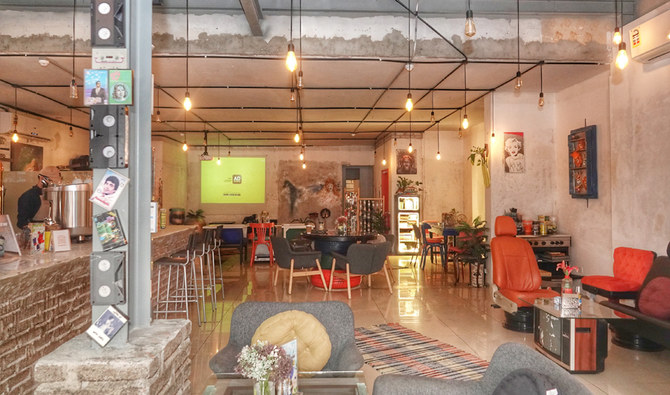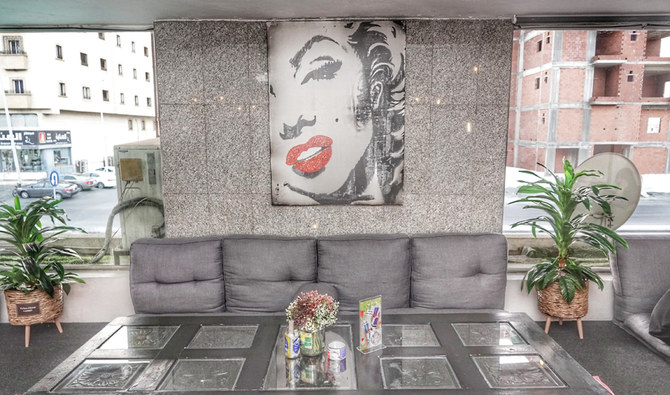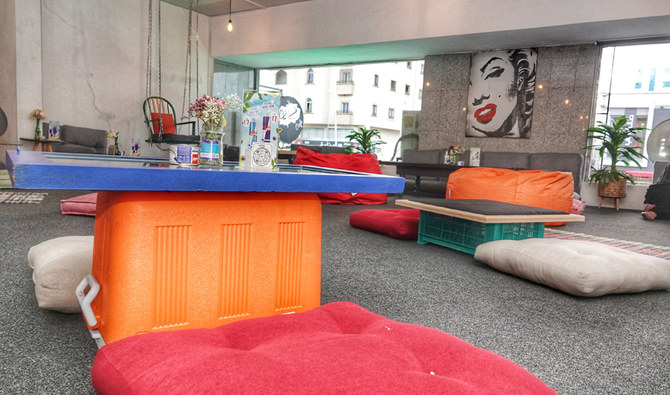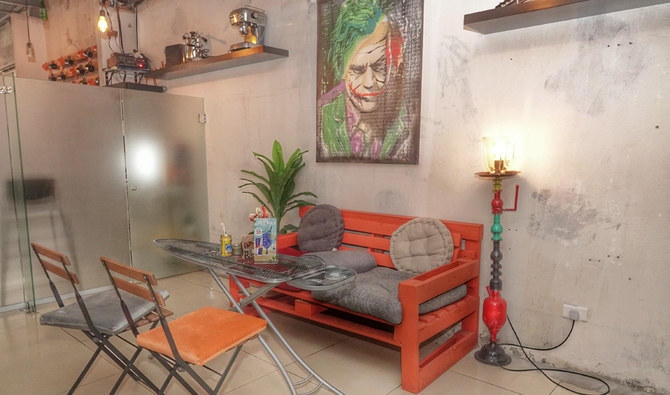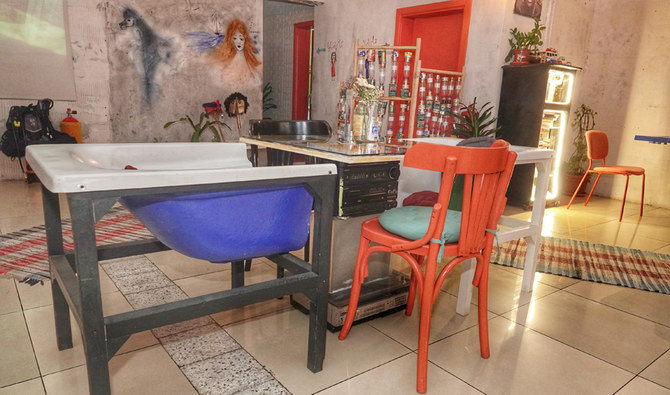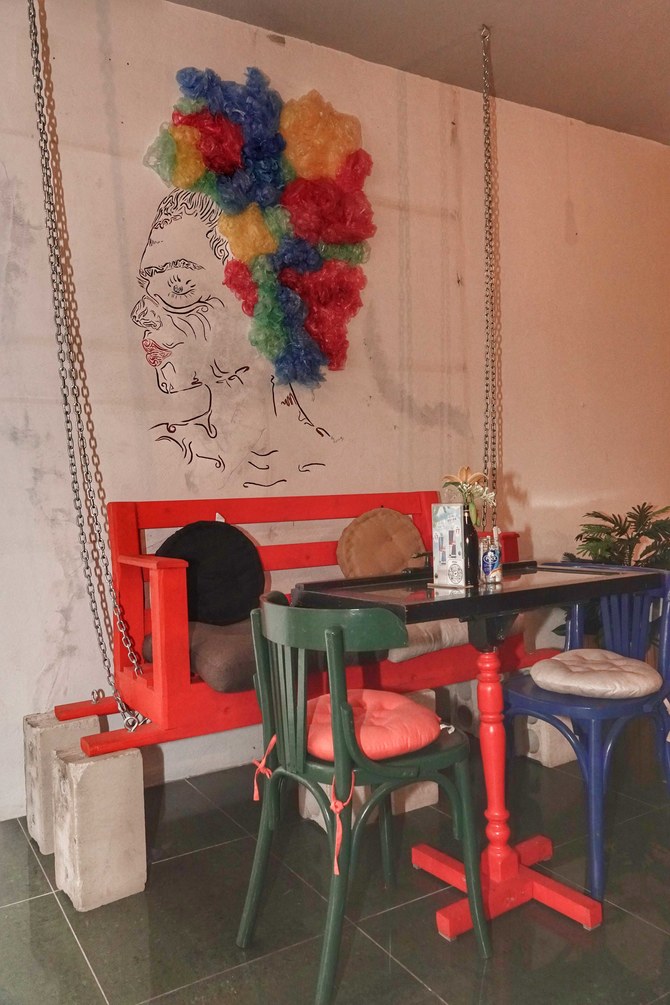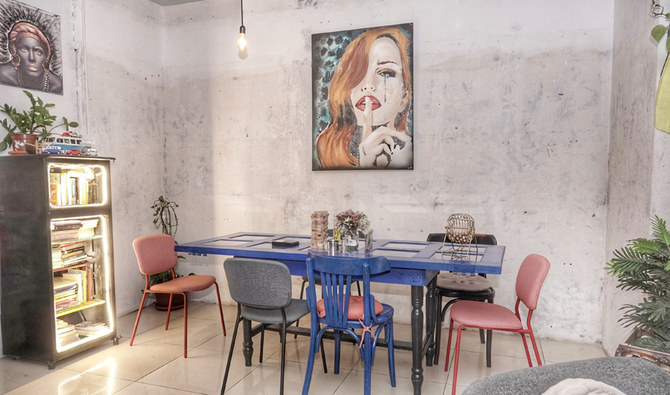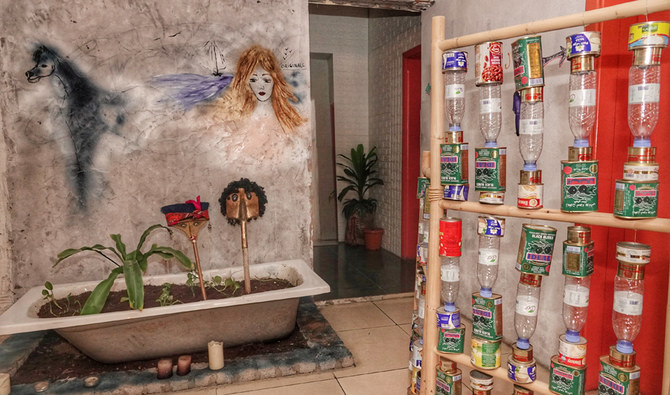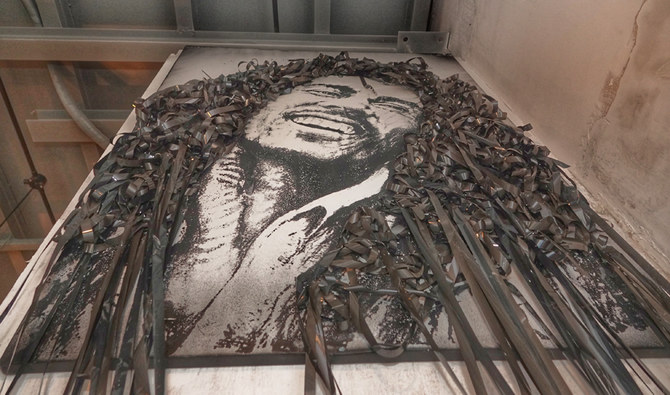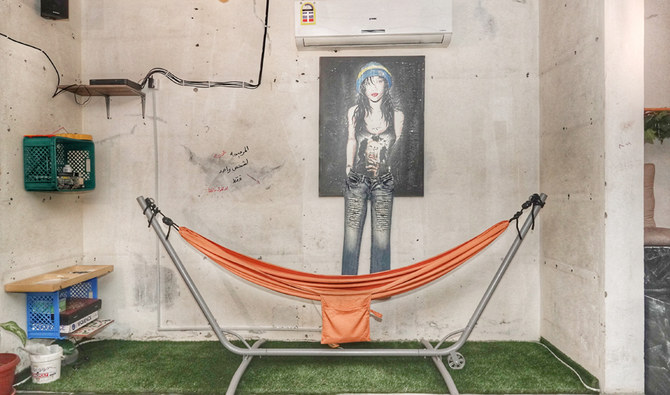JEDDAH: Discarded car seats, ironing boards for tables, a bathtub as a planting pot — recycled materials such as these have transformed one Saudi cafe into a popular and lucrative coffee hub.
Located in the heart of Jeddah, Moknah Cafe is the first gathering spot in the Kingdom to rely heavily on recycled materials for its interior in a move to promote sustainability as a part of daily life.
The idea began brewing in founder Nourah Mohammed Al-Zeer’s mind in late October of last year. After working in human resources for 10 years, Al-Zeer received a contract termination that gave her the freedom to set out on her own. That’s when she began to think of the cafe. She knew she did not want to follow trendy concepts that already existed. She wanted something unique.
“The idea of recycling has always appealed to me, and I have always enjoyed art and interior design, so I brought these hobbies to the project. After doing research as to whether this concept had been done in Saudi Arabia, I made up my mind. I would be bringing what I love into my cafe as well as something different into the market,” she said.
Al-Zeer wanted to do everything herself, from painting the walls to re-setting abandoned furniture and home supplies. What she could not do alone, she did with the help of her friends.
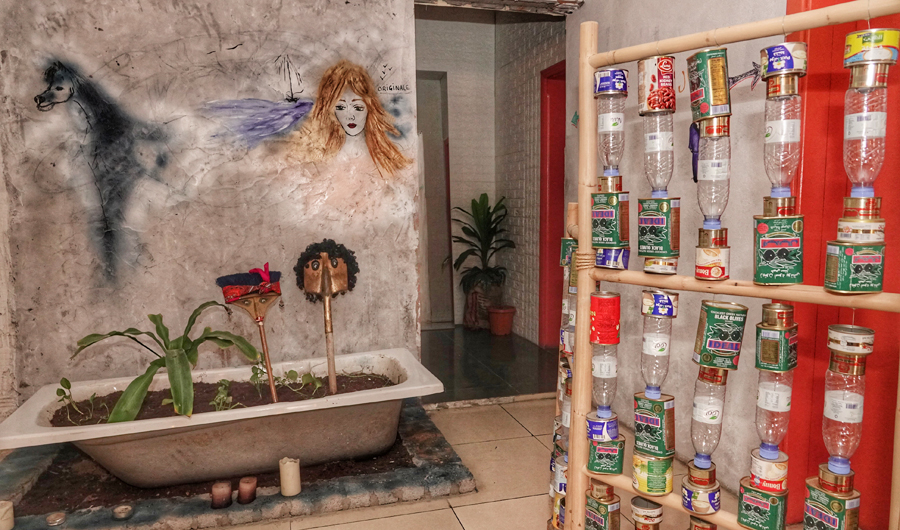
“Fortunately, one day I came across this waste container with washing machines and fridges, and I started collecting these items that no longer served anyone and setting them up in the space I’d rented. I spent a lot of time researching how to recycle these items and after some time, I was coming up with my own ideas,” she said.
The cafe owner later discovered her hunch was correct. Customers flocked to the cafe after finding out what it stood for, or merely for the quirkiness of its interior design. With modified box TVs acting as tables and out-of-order washing machines functioning as display shelves, the cafe invited many curious types.
“Some people stop by, mistaking us for a specialty cafe, but that isn’t what we’re doing. Moknah Cafe is all about living in the moment. We do serve drinks and light meals, but it’s more about making memories, being comfortable in your own company and the company of those you love, rather than dressing up to head somewhere fancy,” Al-Zeer said.
She attributes much of the place’s success to following her instinct in introducing the new theme to Saudi cafes, asserting that vision was the most important part of the process.
“I implore anyone who is embarking on a similar journey to sit and create a vision board. Find something that is entirely you, and do not imitate other people’s ideas in order to succeed,” she said.
Moknah Cafe was designed to inspire people to ask questions and to elicit conversations on the simplicity around them and how they could apply it to their own lives.
The cafe appeals to coffee drinkers passionate about their java and in search of comfortable, quirky spaces. Its walls are lined with sketches and materials used as props for old film reels. Even old glass and wood-paneled doors serve as tables for patrons to sit and enjoy an evening of games. Visitors can also grab a book from the mini-fridge, which was turned into a bookshelf. The place has it all.
The cafe is named after the literal and contextual meaning of the word “Moknah”: the former from “Makan,” a place of gathering; the latter from “Tamkeen,” or empowerment.
Its second story features simple floor seating. With its carrom boards and pool table, it makes the perfect hangout for friends and families.
Performances that go with the vibe of the place are scheduled throughout the week, from instrumental music to soft serenades that fill the space between customers.
“I usually pick performers who blend in with Moknah. Something chill and calm, nothing too rowdy. I would like to have oud and zither players in the future,” Al-Zeer said.
Among its plans for the future, the cafe owner hopes to continue setting up musical nights, workshops and open-mic events that bring people together.


